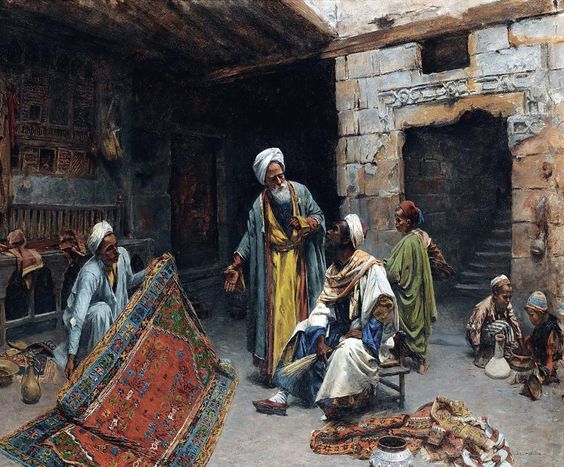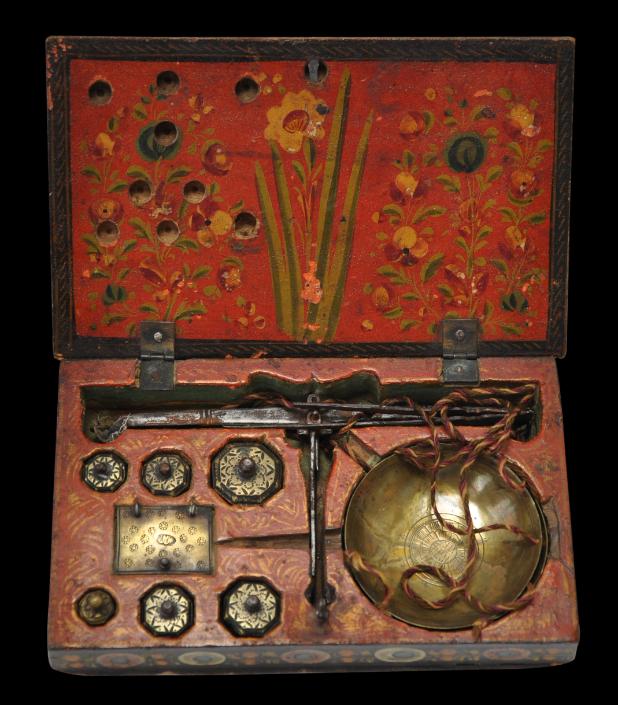
It is my long-held view that the Qur’ānic text is an interpretation of divine directives which the Prophet of Quraysh received through his mind and which he strove of himself to put into words and expressions. So it is our view, and that of others before us that the expressions of the Qur’ān are influenced by the personality of the Prophet.
BY SAID NACHID
WHAT EVIDENCE do we have that the expressions of the Qur’ān are influenced by the personality of the Prophet? We have two essential examples. If we keep in mind the fact that the Prophet grew up as an orphan and then learnt the merchant’s profession within a society that was founded upon trade, we can discern the effect of this socio-cultural background on the mind of the Prophet – and subsequently on the text of the Qur’ān
The Orphan Prophet
Among the various themes concerning charity in the Muhammadan Qur’ān the state of being an orphan is a rich one. It is in fact perhaps the richest and most frequently mentioned charity theme. We can count something like 20 Qur’ānic verses that in their various expressions call for the respecting of an orphan and for the extension of charity towards him. In fact, we notice that the recommendations to charity and respect generally make mention of the orphan before the poor. There are many verses of this:
Worship none save Allah (only), and be good to parents and to kindred and to orphans and the needy [Qur’ān II, 83]
But righteous is he who believeth in Allah and the Last Day and the angels and the Scripture and the prophets; and giveth wealth, for love of Him, to kinsfolk and to orphans and the needy [Qur’ān II, 177]
They ask thee, (O Muhammad), what they shall spend. Say: that which ye spend for good (must go) to parents and near kindred and orphans and the needy and the wayfarer [Qur’ān II, 215]
Give unto orphans their wealth [Qur’ān IV, 2]
And if ye fear that ye will not deal fairly by the orphans [Qur’ān IV, 3]
(Show) kindness unto parents, and unto near kindred, and orphans, and the needy [Qur’ān IV, 36]
And approach not the wealth of the orphan save with that which is better, till he reach maturity [Qur’ān VI, 152]
And know that whatever ye take as spoils of war, lo! a fifth thereof is for Allah, and for the messenger and for the kinsman (who hath need) and orphans and the needy [Qur’ān VIII, 41]
Did He not find thee an orphan and protect (thee)? [Qur’ān XCIII, 6]
Therefor the orphan oppress not [Qur’ān XCIII, 9]
Lo! Those who devour the wealth of orphans wrongfully, they do but swallow fire into their bellies, and they will be exposed to burning flame [Qur’ān IV, 9].
It is generally thought that the last of these verses induced the doctors of law to conclude that the consumption of an orphan’s wealth is a mortal sin in Islam – one of the ten mortal sins according to some, or one of the seven mortal sins in other narrations.
The Merchant Prophet
The Prophet learned his mercantile profession in an Arab tribe whose socio-economic activity was founded on trade (‘For the taming of Quraysh. For their taming (We cause) the caravans to set forth in winter and summer’[1]). We can then understand how it is that the Qur’ānic text came to be ‘full of the language of trade’[2] and mercantile vocabulary, as the Iranian religious reformer Abdolkarim Soroush noted when encountering terms such as: loss, profit, trade, loan, usury, selling, buying, hiring and so on.[3] We might add to these the means of measuring weight: weights, weighing scales, kayl [a dry measure], mikyāl and mithqāl.
Four observations
First observation – the Muhammadan Qur’ān speaks of trade more than any other field of production. There are many verses on this, such as:
Squander not your wealth among yourselves in vanity, except it be a trade by mutual consent [Qur’ān IV, 29]
And the wealth ye have acquired, and merchandise for which ye fear that there will be no sale [Qur’ān IX, 24]
Men whom neither merchandise nor sale beguileth from remembrance of Allah [Qur’ān XXIV, 37]
O ye who believe! spend of that wherewith We have provided you ere a day come when there will be no trafficking, nor friendship [Qur’ān II, 254]
Allah permitteth trading and forbiddeth usury [Qur’ān II, 275]
But when they spy some merchandise or pastime they break away to it [Qur’ān LXII, 11]
When ye contract a debt for a fixed term, record it in writing [Qur’ān II, 282]
Second observation – the Muhammadan Qur’ān speaks frequently of questions of religion and the relationship with God through a mercantile point of view, such as:
Who is it that will lend unto Allah a goodly loan, so that He may give it increase manifold? [Qur’ān II, 245]
And lend unto Allah a kindly loan [Qur’ān V, 12]
O ye who believe! Shall I show you a commerce that will save you from a painful doom? [Qur’ān LXI, 10]
And of mankind is he who would sell himself, seeking the pleasure of Allah; and Allah hath compassion on (His) bondmen [Qur’ān II, 207]
These are they who purchase error at the price of guidance, so their commerce doth not prosper, neither are they guided [Qur’ān II, 16].
Third observation – the Muhammadan Qur’ān employs the same devices and tools which the trade uses, such as weighing scales, mikyāl and mithqāl, whether in speaking of trade or in speaking of religion. Examples are:
And give not short measure and short weight. Lo! I see you well-to-do, and lo! I fear for you the doom of a besetting Day [Qur’ān XI, 84]
O my people! Give full measure and full weight in justice, and wrong not people in respect of their goods. And do not evil in the earth, causing corruption [Qur’ān XI, 85]
Woe unto the defrauders: Those who when they take the measure from mankind demand it full, But if they measure unto them or weight for them, they cause them loss [Qur’ān LXXXIII, 1-3]
We verily sent Our messengers with clear proofs, and revealed with them the Scripture and the Balance, that mankind may observe right measure; and He revealed iron, wherein is mighty power [Qur’ān LVII, 25]
And as for those whose scale is light: those are they who lose their souls [Qur’ān VII, 9]
And the sky He hath uplifted; and He hath set the measure, That ye exceed not the measure, But observe the measure strictly, nor fall short thereof [Qur’ān LV, 7-9].
Fourth observation – the system of punishments in the Qur’ānic text generally is such that would meet the approval of the merchant’s mindset, within a socio-economic context that is basically founded upon trade. There is no greater evidence for this than the fact that the crimes of theft and highway robbery – things that the merchant fears the most – are classed within the system of hadd punishments for which there is no amnesty nor lenience, and for which the punishment is the severing of the thief’s hand and the severing of the highway robber’s extremities (the hadd al-hirāba[4]).
Suggested Reading
Conversely, in the case of usury – despite its criminalisation and categorical prohibition in the Qur’ānic text (‘Allah permitteth trading and forbiddeth usury’) and (‘Allah hath blighted usury’)[5] – the text of the Qur’ān does not stipulate any hadd punishment, nor any punishment at all for it. This is also the case with the crimes of fraud, bribery and monopoly which are economic crimes which a merchant may commit. When the Qur’ānic text mentions their prohibition, such as in (‘Woe unto the defrauders: Those who when they take the measure from mankind demand it full, But if they measure unto them or weight for them, they cause them loss’[6]), they are crimes without specified Qur’ānic punishments. It is the doctors of law who have listed it for punitive sanctions, sanctions that are discretionary and lenient in comparison to the ḥadd of theft and ḥirāba.
[1] Qur’ān CVI, 1-2.
[2] Abdolkarim Soroush, Expansion of Prophetic Experience, tr. Ahmad al-Qubbanji, Baghdad 2009, p.65.
[3] Ibid.
[4] That is, the ‘punishment of those who make war on God’ as stipulated in Qur’ān V, 33: The only reward of those who make war upon Allah and His messenger and strive after corruption in the land will be that they will be killed or crucified, or have their hands and feet on alternate sides cut off, or will be expelled out of the land. Such will be their degradation in the world, and in the Hereafter theirs will be an awful doom. (Ed.)
[5] The two citations are from Qur’ān II, 275 and 276.
[6] Qur’ān LXXXIII, 1-3.

